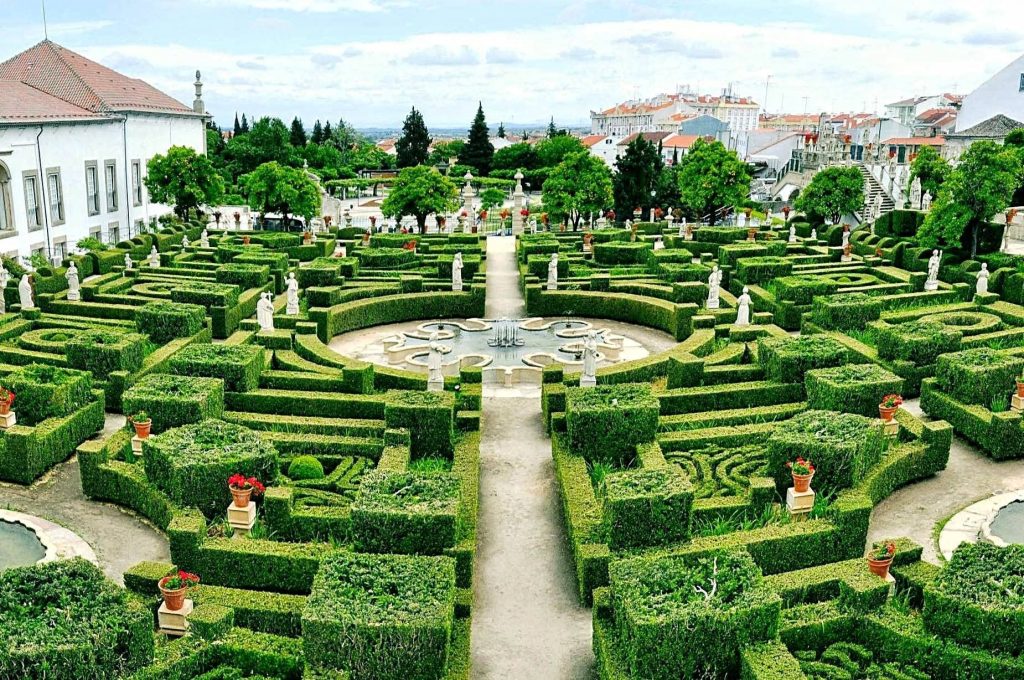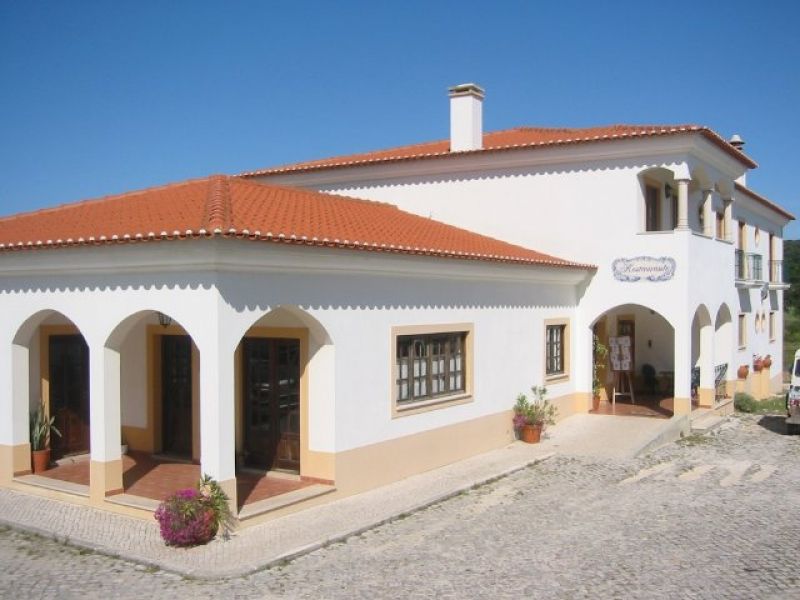Portugal offers not only a mild climate, high quality of life and a sustainable economy, but also affordable opportunities in the property market. Outside the tourist highways and metropolitan areas remain regions with low prices, high liquidity and growth potential. Cheap cities in Portugal for buying a home allow you to build a balanced investment portfolio, optimise your relocation budget and minimise the costs of everyday expenses.
Bragança: the reliability of the north-east
Bragança, located in a mountainous area close to the Spanish border, offers the lowest housing prices of any major municipality in the country. Portugal’s cheap cities to buy a home have rarely shown such stability of demand combined with infrastructure. Flats here cost from €35,000 and houses from €50,000.
Transport accessibility includes regional roads and proximity to Spanish routes. The city attracts retirees, students and digital nomads. Low rents keep the cost of living down and administrative structures incentivise relocation by simplifying the process of obtaining a residence permit.
Castelo Branco: green centre and academic environment
 Castelo Branco is one of Portugal’s cheap cities to live in, with a well-developed education system and green areas. Property prices start from 45,000 euros for one-bedroom flats. The region provides comfortable living for families, professionals and remote workers. Castelo Branco maintains some of the lowest rents, utilities and housing taxes. A local university and government support programmes make it a sustainable location for budget investment.
Castelo Branco is one of Portugal’s cheap cities to live in, with a well-developed education system and green areas. Property prices start from 45,000 euros for one-bedroom flats. The region provides comfortable living for families, professionals and remote workers. Castelo Branco maintains some of the lowest rents, utilities and housing taxes. A local university and government support programmes make it a sustainable location for budget investment.
Viseu: moderation, history and perspectives
Viseu offers a balance between a historic environment, quality infrastructure and reasonable prices. It is one of Portugal’s most budget-friendly cities to relocate to, with a square metre of housing starting from 900 euros. The centre districts are saturated with architecturally valuable properties, while the suburbs provide spacious homes at below-market prices.

Local authorities are promoting a sustainable development strategy, introducing measures to improve the urban environment and supporting start-ups. Viseu targets those seeking a quiet but active urban life and lowers barriers to entry into the property market.
Vila Real: university, mountains and stability
Vila Real is the regional centre of Traz-Uj-Montich. It combines scientific and educational potential with natural surroundings. Property prices start from 40,000 euros, especially in areas away from the centre. The city is actively developing medical facilities, sports centres and social programmes.
Immigration to Portugal is inexpensive through such cities due to affordable flats, simplified bureaucracy and low competition in the market. Investors take advantage of short-term and long-term rental opportunities – demand is formed by students and visiting professionals.
Leiria: transport and investment bias
Leiria is located between Lisbon and Porto, forming a strategic corridor. It is one of the cheapest cities in Portugal to buy a home, combining a well-developed transport infrastructure, industrial zones and a stable market. The average cost is €1,000-1,200 per m², which is significantly lower than prices in the metropolitan belt.
The region offers quick access to major centres by road and train, while maintaining a budget standard of living. Leiria is actively accepting new construction projects and attracting investments in IT clusters, logistics and educational structures.
The pros of cheap cities in Portugal for buying a home
Portugal’s cheap towns to buy a home form an attractive alternative to large urbanised areas. Utilities ensure uninterrupted water and electricity supply, regularly renew road surfaces, and develop public spaces – parks, playgrounds, recreation areas. Local governments invest in health care: most provincial centres have municipal clinics, hospitals, maternity wards and emergency rooms. This is especially important for retirees and families with children who choose peace and security over the hustle and bustle of the city.
Road and transport accessibility is easy even in remote areas. Railway stations connect the regions to Porto, Lisbon and the coast. Bus routes run between towns and villages with high regularity. Many provinces are launching their own mobile apps to pay fares, track routes and get information on traffic changes. This digitalisation of infrastructure increases comfort and trust in local authorities.
There are regional adaptation programmes for newcomers: free language courses, information centres, and legal support. Some municipalities reimburse part of the costs of relocation or paperwork. Portugal’s budget cities for living thus enhance social integration and motivate migrants to settle permanently.
Financial aspect
The financial aspect also plays a key role. Living expenses in the province are much lower than in the tourist capitals. The average monthly budget per adult is 600-900 euros. This amount includes rent of a one-room flat, food, transport, mobile communication and basic insurance. By comparison, in Lisbon and Porto, a similar set of expenses easily exceeds 1,200 euros. This explains the growing interest in small towns – they provide a decent standard of living with minimal expenditure.
Housing as a factor of stability
Property remains one of the key tools for creating personal and financial security. Portugal’s cheap cities to buy a home allow you to own a flat or house in a short period of time with minimal investment. Many municipalities have subsidy programmes for the renovation of old stock. The buyer can buy an object at a price from 30 000 euros and invest an additional 10-20 thousand in repairs, while the total cost will remain below market value.

Investors are given flexibility in choosing a strategy. One of the most popular options is renting. Small towns provide a stable demand among students, medical staff, civil servants and visiting specialists. Average rental yields in such regions reach 4-6% per annum. These are not record figures, but they are stable and predictable. The low level of competition reduces the likelihood of downtime between tenants and simplifies property management.
Another important aspect is immigration. Inexpensive property often serves as a basis for obtaining a residence permit. The registration procedure is simplified. Most transactions are completed within 30-40 days, including inspecting the property, signing the contract, paying taxes and entering data into the registry. Local notaries and agents provide services in English and accompany the process until the property is fully registered.
The tax burden in small towns does not cause budget overload. Municipal property tax (IMI) ranges from 0.3 to 0.5 per cent per year of the cadastral value. In the first three years after the purchase of a newly built or extensively renovated home, the authorities often grant tax exemptions. This further reduces start-up costs and allows you to concentrate on improvements or investments.
Choose among the cheapest cities in Portugal to buy a home
 Purchasing property outside of tourist cities allows you to avoid overheated prices and get maximum quality for minimum money. Each of these regions opens its own growth trajectory, creates local demand and strengthens the owner’s position. By focusing on these locations, you are investing not only in property, but also in the potential of a developing Portugal.
Purchasing property outside of tourist cities allows you to avoid overheated prices and get maximum quality for minimum money. Each of these regions opens its own growth trajectory, creates local demand and strengthens the owner’s position. By focusing on these locations, you are investing not only in property, but also in the potential of a developing Portugal.
 en
en  ru
ru  de
de  ar
ar  es
es  nl
nl  hi
hi  fr
fr  it
it  pt
pt  el
el 











